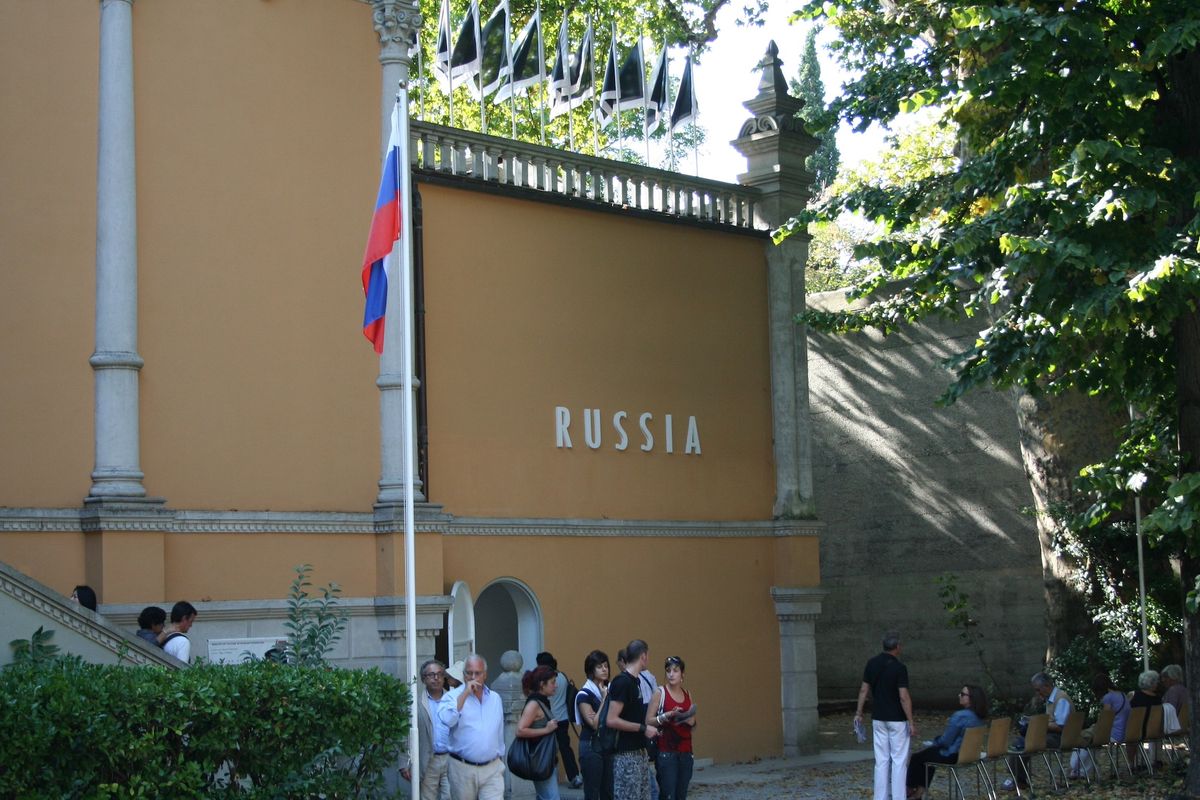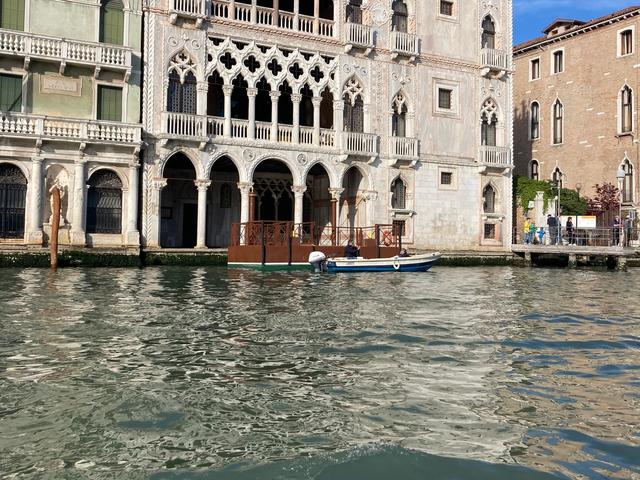Russia, which has not participated in the Venice Biennale since its February 2022 invasion of Ukraine, has handed over use of its pavilion in the Giardini to the Plurinational State of Bolivia for the event’s 60th edition (20 April-24 November).
The decision, reported in March by Il Giornalle dell’arte, coincides with cultural cooperation, lithium extraction and atomic research agreements between Russia and Bolivia. Bolivian president Luis Arce congratulated Vladimir Putin for his victory with over 87% of the vote in the 15-17 March presidential elections.
Bolivia’s exhibition is titled looking to the futurepast, we are treading forward according to the Biennale website. Bolivia’s Ministry of Cultures, Decolonisation and Depatriarchalisation is organising the show, with the vice minister Juan Carlos Cordero Nina serving as commissioner.
It will include artists from Bolivia and other South American countries, among them: textile artist Elvira Espejo Ayca and muralist Lorgo Vaca from Bolivia, Yanaki Herrera from Peru and Zahy Tentehar, an Indigenous artist and filmmaker from Brazil.
In 2023, Bolivia signed a lithium agreement with Rosatom, Russia’s state nuclear agency, on tapping the country’s reserves of the metal. Last week, the director of the Bolivian Nuclear Energy Agency said that a research reactor will be launched with Russian specialists in 2025.
The Russian Foreign Ministry said in a press release that a 12 March telephone conversation between Minister of Foreign Affairs Sergei Lavrov and Bolivia’s Minister of Cultures, Decolonisation and Depatriarchalisation Esperanza Guevara “took place in the spirit of friendship and mutual understanding typical of Russia-Bolivia relations” about “their continued interaction in the cultural and humanitarian sector”.
As relations with the West continue to fray, Russia has been expanding its cultural reach, in many cases reviving old Soviet ties such as in Africa. In March, a Russian culture ministry delegation visited North Korea.
Lithuanian curator Raimundas Malašauskas and Russian artists Alexandra Sukhareva and Kirill Savchenkov pulled out of the Russian pavilion show at the 2022 Venice Biennale after Putin launched his invasion of Ukraine on 24 February 2022. The Biennale announced at the time that it will “not accept the presence at any of its events of official delegations, institutions or persons tied in any capacity to the Russian government” for the duration of the invasion.
Russia’s pavilion was designed in 1914 by Alexey Shchusev, who started as a tsarist-era architect and later designed the Lenin Mausoleum on Red Square. In 2019, Smart Art, an art production and exhibition company was contracted to run the pavilion for ten years. It was co-owned by Lavrov’s daughter, Ekaterina Vinokurova, and Anastasia Karneeva, the daughter of a former Federal Security Service general, Nikolay Volobuyev, now deputy chief executive of Russian state-owned defence contractor Rostec.
As of 1 January, the only other remnant of a Russian institutional presence in Venice—the V-A-C Foundation of sanctioned billionaire Leonid Mikhelson—vacated its Palazzo Zattere space and parted ways with Teresa Iaoricci Mavica, the Italian art manager who oversaw the venue and the 2021 opening of Moscow's GES-2.



